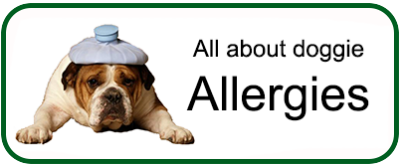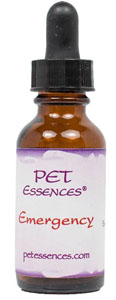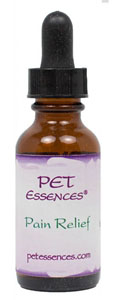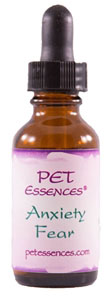We don’t vaccinate our kids or ourselves annually, so why
Vaccinate our dogs every year?
Canine Health Concern - Putting your dog's health first
The ‘Vaccination business’ is a major profit center for many vets
We don't get childhood shots year after year throughout our lives - why do our pets?
Change is in the wind |
Are vaccinations worth the risk of allergic reactions?
Dog vaccination allergic reactions and symptoms
Lets start by listing the major allergic effects or reactions that pose a risk to your dog
This website opposes |
Small Dog Vaccination Danger Alert |
Dog vaccination classification |
Dog vaccination guidelines and schedules
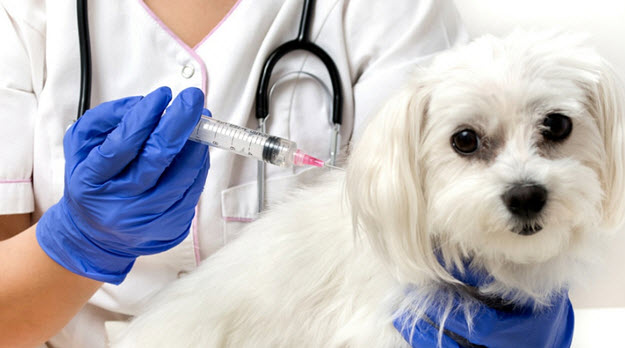
Canine Health Concern - Putting your dog's health first
Profit-hungry drug companies and vets are 'frightening' dog owners into inoculating their pets more often than necessary, according to U.K. based pet charity, Canine Health Concern. Some puppies have developed conditions including autism and epilepsy after a raft of injections, the charity warns.
Catherine O'Driscoll, from the charity, said
"We are not anti-vaccination. What we are saying is that currently our pets are receiving far too many. The latest scientific research shows that after the first course of injections as a puppy most dogs are immune against these diseases for at least seven years, if not for life."
The ‘vaccination business’ is a major profit center for many vets
Risks are only acceptable when they greatly outweigh benefits, yet sadly, many vaccines are given unnecessarily.
Vet practices which depend on vaccination schedules to keep the doors open are typically small operations of one to three doctors that do not specialize or provide emergency services. The markup on rabies vaccines is astronomical – 2400 to 6200 percent in many cases. Estimates are that removing the one-year rabies vaccination and surgery visit for dogs alone could reduce a veterinarian’s income from $87,000 to $25,000. And this example involves just one variety of one vaccine, and only dogs.
One conservative estimate is that over half of dog visits and nearly three quarters of cat vet visits are for vaccinations. When you consider the markup on vaccines, the number of vet visits scheduled only for immunizations, and the typically short duration of those visits, the ‘vaccination business’ can prove to be very lucrative for veterinary practices that promote it.
Veterinarians aren’t the only ones making a living off vaccination shots. The drug companies who manufacture vaccines have enjoyed an increase in sales of seven percent per year for the last 10 years. The U.S. is the largest consumer of vaccines by a huge margin over any other country.
Before vaccinating your dog please take a moment to watch the following video on adverse vaccine reactions in cats and dogs.
We don't get childhood shots year after year throughout our lives - why do our pets?
For generations now, pet owners world wide have been educated to take their new puppy to their family vet for initial puppy shots and thereafter annual booster shots have become a bit of a ritual.
Over time this practice has turned into a multi-billion dollar business for drug companies and vets. When health intersects money, there is always going to be a lot of room for conflict of interest.
Sadly our precious pets are paying an awful price for this practice, with more and more pets presenting at veterinary clinics with allergic reactions and illnesses from vaccines, ranging from small lumps and Seizures to injection-site cancers.

Change is in the wind
Vets are now starting to take notice of the Dog Vaccination Guidelines and Schedules of my hero Dr. Ronald Schultz from the University of Wisconsin-Madison who has devoted 40 years of his working life into researching and studying dog vaccinations.
Dr. Schults is an avid advocate for pet parents to have a Titer Test done for their pets before considering multiple vaccinations after their pets 12 months' booster shots.
Are vaccinations worth the risk of allergic reactions?
Absolutely! The risks associated with vaccines are slight compared with the risk of your pet contracting a fatal disease, e.g. distemper, parvovirus or rabies. I make this statement based on puppy shots, followed one year later by booster shots. Thereafter you are putting your dog in harms way to revaccinate without having a Titer Antibody Test done first.
Dog vaccination allergic reactions and symptoms

In simplistic terms vaccinations stimulate a dog’s immune system to protect itself against disease. When a dog is injected with an antigen the dog’s body recognises it as foreign and produces antibodies to destroy it.
So even though the invader has disappeared, the cells that manufactured the antibodies remember it and will respond more quickly the next time they are confronted with the same agent.
Allergic effects from vaccinations vary with:
- The type of vaccine used
- The age of the dog
- The breed of the dog
Lets start by listing the major allergic effects or reactions that pose a risk to your dog
Neurologic and eye
Neurologic and eye disease are the most common allergic reactions to dog vaccination - the diseases involved are:
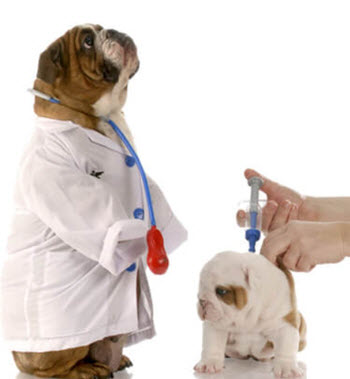
- Canine distemper vaccination is the most common cause of neurologic disease, and can cause inflammation of the brain
- Canine adenovirus-2 is extremely rare, but it is known to cause allergic inflammation of the eye (uveitis), often called blue eye
- Measles vaccine in puppies has been reported to cause an allergic reaction and damage to their nervous system. This reaction is rare
Allergic reaction to modified live vaccines
- Vaccinating puppies less than 4–5 weeks of age can actually result in them becoming infected and developing disease from the modified live vaccines, thus causing allergic reactions to kick in
- Vaccinating pregnant dogs with modified live vaccines can result in birth defects in the puppies and or the foetuses to abort
- Discomfort, pain, redness and swelling at the injection site which generally occur within 30 minutes to 1 week of the dog vaccination. Occasionally, abscesses can form at the injection site so if symptoms persist or become serious, make an appointment to visit your veterinarian immediately. Normally these abscesses are not caused by bacterial infection but rather the dog's body over reacting to the vaccine
Allergic reaction to modified killed virus vaccines
The medical term for an allergic reaction to modified killed virus vaccines is called an "anaphylactic reaction". Although rare, they extremely serious. This is mainly because drug manufacturers tend to:
- Include more bacterial particles per dose
- Add chemicals with the intent to improve dogs' immune responses
Unfortunately it is these added features which are responsible for increasing the risk of dog vaccination allergies!
Young, adult, small breed dogs receiving multiple vaccinations at the same time have the highest risk of this type of reaction. The reaction normally occurs within minutes to hours (always less than 24 hours) of the dog being vaccinated.
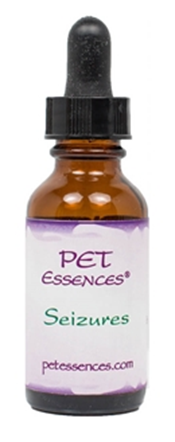
Symptoms of anaphylaxis
- The sudden onset of diarrhea and vomiting
- A weak pulse, but a fast heart rate
- Very pale gums
- Cold limbs and feet
- Shock, Seizures, Coma and finally death if left untreated
Anaphylaxis is an extreme life threatening emergency. If you think your dog is having an anaphylactic reaction, seek emergency veterinary assistance immediately, meaning seconds and minutes here, not hours.
Allergic reaction to distemper vaccination
Distemper vaccinations have been known to cause an allergic reaction called "hypertrophic osteodystrophy", which is a painful bone disease in young, large breed dogs usually between the ages of 2 – 5 months.
The condition is usually treated with one of a group of drugs called "glucocorticoids" more commonly known as hormonal steroids, and most times the allergic reaction is resolved.
Immune-mediated polyarthritis
Immune-mediated polyarthritis is a disease that causes inflammation and arthritis in the joints of dogs.
Dogs suffering from immune deficiency diseases are prone to abnormal immune system allergic responses following dog vaccination. If your dog has an immune deficiency condition, it is extremely important to check with your veterinarian if it is safe to have him or her vaccinated.
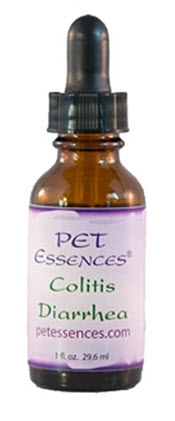
Lameness and diarrhea
Whilst rare, puppies can have dog vaccination side effects to puppy vaccinations. Typical symptoms are diarrhea and lameness. Puppies can dehydrate very quickly and you must seek veterinary assistance without delay because dehydration can be fatal in young dogs.
Dehydration and diarrhea are typical dog vaccination allergic reactions for dogs of all ages
Respiratory signs after intra-nasal vaccines
Dogs vaccinated with intra-nasal kennel cough and or para-influenza vaccines can develop mild coughs, which generally don’t require treatment.
This website opposes
- Vaccination of dogs without first researching the risks, benefits, vaccine effectiveness and duration of immunity
- Re-vaccination of animals that already have long or lifetime immunity
- "One size fits all" vaccination protocols, e.g. giving a Chihuahua the same amount of vaccine as a Great Dane
- Multiple vaccines given in one visit, especially to small breed dogs
- Optional vaccines routinely given to pets not specifically at risk
- Optional vaccines offering short immunity, limited effectiveness and high adverse reaction rates
- Vaccination of unhealthy animals
- Vaccination before or during surgery
- Vaccination of animals too young to form immunity, e.g. puppies which are young enough to still have immunity from their mothers
- Vaccination with vaccines on the “not recommended” list of the AVMA, or WSAVA
- Vaccine labels suggesting re-vaccination intervals sooner than supported by current research, e.g. annually rather than every three years and in some cases up to seven years.
Small Dog Vaccination Danger Alert
If You have a small to medium size dog I strongly advise you to watch the following video before considering vaccination and to seek advice from a holistic vet first.
This short 13 minute video clip, is edited from the original 35-minute video, which contains interviews with the top holistic vets in the U.S: Dr. Richard Pitcairn, Dr. Jean Dodds, Dr. Ron Schultz, Dr. Steven Blake, Dr. Allen Schoen, Dr.Marty Goldstein and many others. This is a DVD by Dr. Margo Roman and documentary filmmaker Simone Hnilicka.
Note: If you have you been trying to convince friends or family to feed their dogs better and vaccinate less, this is the perfect gift. Click here to purchase it. All proceeds (less shipping) benefit the nonprofit Center for Integrative Veterinary Care.
Dog vaccination classifications
Before discussing dog vaccination allergies it is important for readers to understand how drug manufacturers classify dog vaccinations. They are, "modified live and killed" vaccines and "core and non-core vaccines.
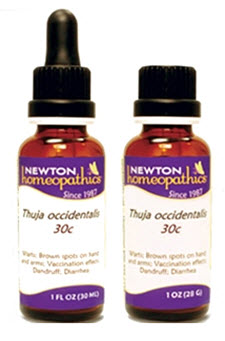
Modified live viruses
Modified live vaccines give rapid protection, their positives are:
- They provide local immunity
- They are stronger and longer lasting than killed vaccines
- They cause less allergic effects
Modified killed viruses
Modified killed vaccines provide protection but are not as effective as live vaccines - their negatives are:
- They don't produce local immunity
- Dogs require more initial injections and more frequent booster shots to maintain protection
- They are more likely to cause allergic reactions
Core vaccines
Core vaccines are those vaccines which are considered to be necessary to the maintenance of your dog's health. Generally, they are given as a series of three puppy shots, and then followed up by a booster shot one year after the last puppy shot. They should be given to all healthy dogs. To continue to vaccinate yearly thereafter should not be done unless you have a Titer Test first.
Core vaccinations are
- Canine Distemper
- Hepatitis
- Parainfluenza
- Rabies (in countries that are not rabies free)
- Parvovirus
Non core vaccines
Non core vaccines are those that are not usually considered necessary, but may be administered when exposure to the disease is expected. They are usually given to dogs on the basis of:
- Their geographical location, e.g. rabies is considered a core vaccination in the U.S. where wildlife are carriers of the disease, whereas in Australia and New Zealand which are rabies free it is considered non core.
- A dog's lifestyle, e.g. whether it is exposed to mixing with other dogs, as in being a working dog with the police force, search and recovery or customs, or if you travel a lot and intend to put your dog into boarding kennels on a regular basis, as opposed to a family pet with limited exposure to other dogs.
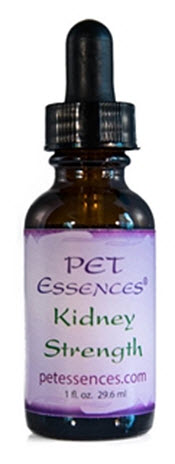
Non core vaccinations are
- Bordetella Bronchiseptica - kennel cough
- Coronavirus - tummy upsets
- Measles
- Leptospirosis - bacterial infection of the blood, which can be transferred to humans
- Lyme Disease - Deer Tick
- Para-influenza
Dog vaccination guidelines and schedules
Recent studies indicate that vaccines have a longer term of effectiveness against disease than previously thought. In fact some veterinary colleges in the U.S. have gone so far as to publish alternative dog vaccination protocols which suggest three-year intervals after dogs have had their 12-month boosters.
Researchers at the Veterinary Schools at the Colorado State University, and the University of Wisconsin suggest alternating vaccinations in dogs from year to year to reduce allergic reactions.
For instance, instead of using multivalent vaccines, they recommend using monovalent vaccines which only have one component. An example being, one year your dog would be vaccinated against distemper, the next year against canine adenovirus-2 (respiratory disease) and the third year against parvovirus. Then the cycle would repeat itself.
Some vets have taken another approach, they divide dog vaccinations into two groups according to the prevalence of dog diseases in their area, and recommend skipping vaccinations altogether for older animals that seldom leave home and for pets with existing compromised immune systems.
This is why the Titer Antibody Test is so useful and indeed reassuring to pet owners. Click Here for our recommended dog vaccination chart
Manufacturers of dog vaccines have not changed their labeling, and still continue to recommend annual vaccinations and make no suggestions that smaller dogs be given reduced strength vaccines.
This article and information forms part of the Carole's Doggie World Holistic Library and is presented for informational purposes only.The information is not intended to be a substitute for visits to your local vet. Instead, the content offers the reader information researched and written by Carole Curtis for www.carolesdoggieworld.com

